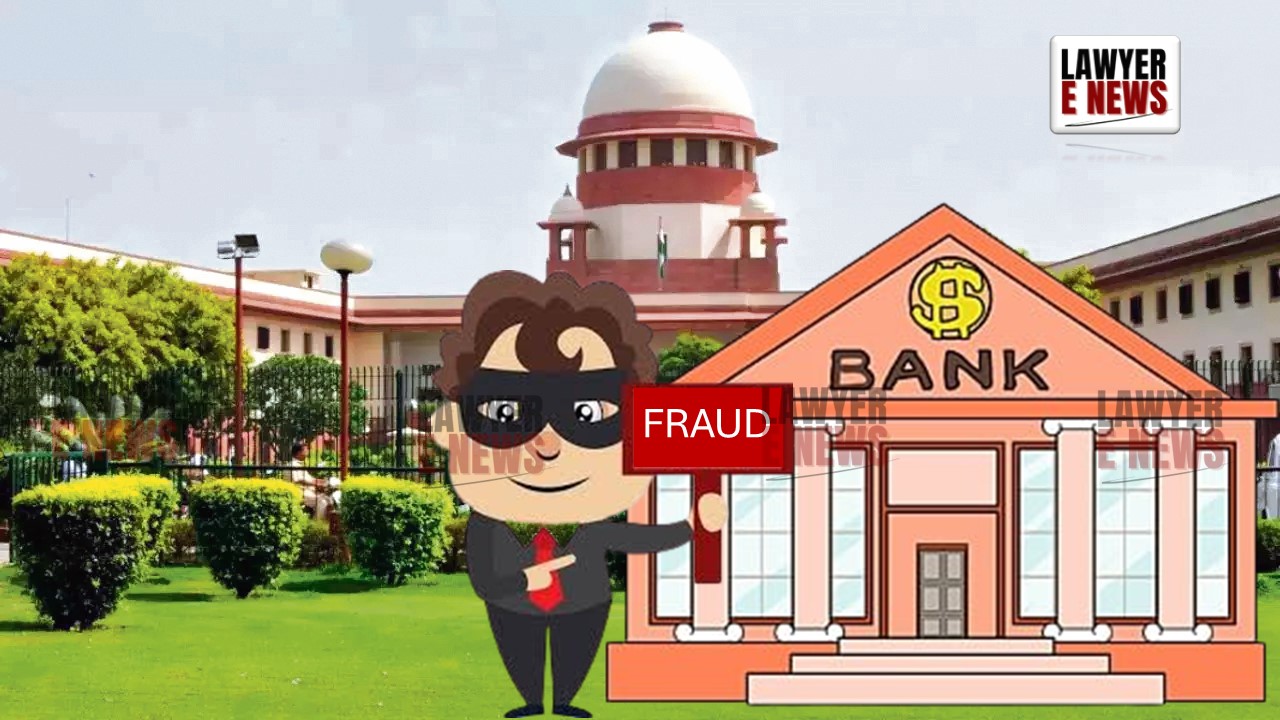-
by Admin
07 May 2024 2:49 AM



Today, On October 3, 2024, the Supreme Court of India, in the case of Tarina Sen v. Union of India, delivered a key judgment, quashing criminal proceedings against the appellants in a long-standing loan fraud case. The Court held that when financial disputes are settled between parties, especially in commercial transactions, the continuation of criminal prosecution would serve no purpose. The judgment was delivered by Justice B.R. Gavai and Justice K.V. Viswanathan, overturning the Orissa High Court's decision that had refused to quash the proceedings.
The case arose from a loan fraud involving Clarion Travels, a firm in Bhubaneswar, where the appellants were partners. The Central Bureau of Investigation (CBI) had initiated criminal proceedings against five individuals, including the appellants, for fraudulently obtaining loans from Allahabad Bank in 1998 and defaulting on repayments. The allegations included criminal conspiracy and forgery, invoking sections of the Indian Penal Code (IPC) and the Prevention of Corruption Act, 1988.
A key development occurred when Clarion Travels and the bank reached a One-Time Settlement (OTS) in 2011, discharging the firm from the loan liability. Despite the settlement, the criminal proceedings, initiated in 2002, continued, prompting the appellants to seek relief from the courts.
The appellants approached the Supreme Court after the Orissa High Court dismissed their petitions under Section 482 of the Criminal Procedure Code (CrPC) seeking to quash the criminal proceedings. The Supreme Court considered whether the continuation of criminal proceedings was justified after a financial settlement had been reached between the parties.
Senior Advocate Dama Seshadri Naidu, representing the appellants, argued that both appellants were merely partners in the firm and had played no active role in the alleged fraud. Furthermore, he pointed out that the loan dispute had been amicably settled through the OTS, which was accepted by the bank, and the loan account had been closed in 2011. He argued that continuing the criminal case would be an exercise in futility.
The Court also noted that two of the primary accused had since passed away, further weakening the prosecution's case.
"The possibility of conviction is remote when disputes are resolved, making continued prosecution oppressive." – Supreme Court
In its judgment, the Supreme Court held that where financial disputes of a private nature are resolved through settlement, the continuation of criminal proceedings is not only unnecessary but also oppressive. The Court relied on a series of precedents, including Nikhil Merchant v. CBI and Gian Singh v. State of Punjab, where it had previously ruled in favor of quashing criminal proceedings in cases involving financial settlements.
The Court underscored the principle that in commercial transactions where the wrong is private, and both parties have resolved their differences, prosecuting the case serves no public interest. It observed that the likelihood of conviction was "remote and bleak", and continuing the proceedings would cause undue hardship to the accused.
The Court further reiterated that the High Court should have exercised its power under Section 482 of the CrPC to quash the proceedings, as the criminal trial would no longer serve any meaningful purpose.
The Supreme Court quashed the criminal proceedings against the appellants in T.R. No. 28 of 2002, pending before the Special CBI Judge, Bhubaneswar, bringing relief to the appellants. The ruling reinforces the legal principle that courts should not hesitate to quash criminal cases in situations where the dispute is resolved, and prosecution serves no public or private interest.
Date of Decision: October 3, 2024
Tarina Sen v. Union of India & Anr.
